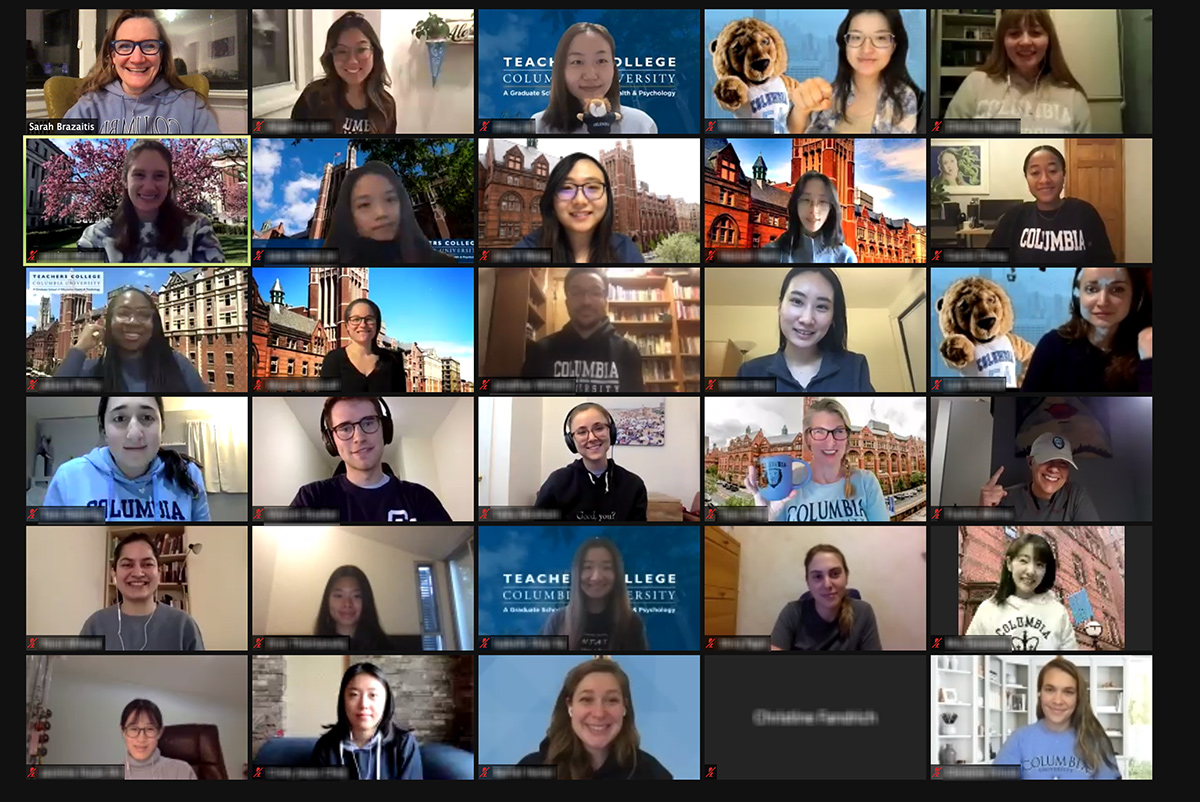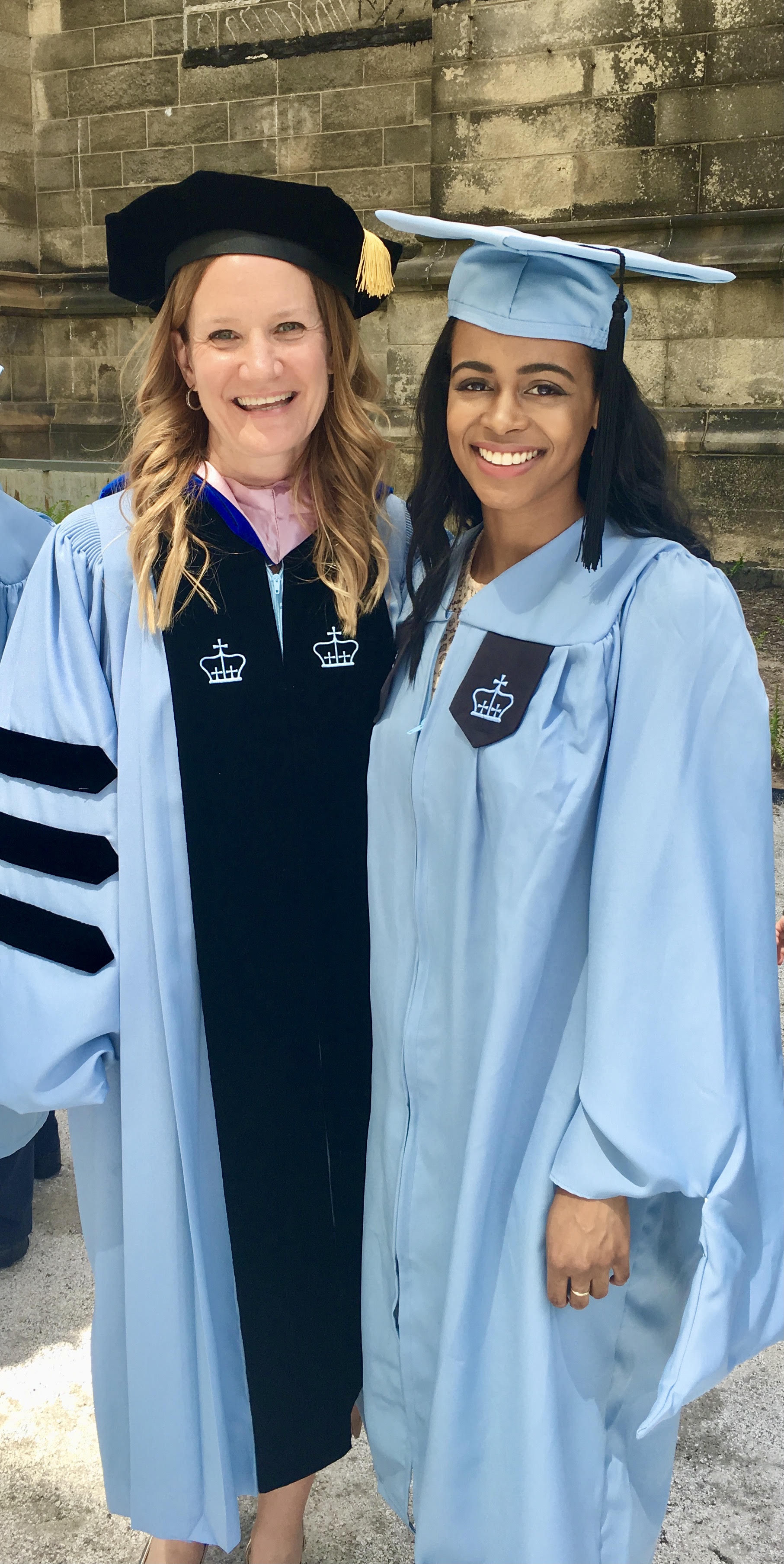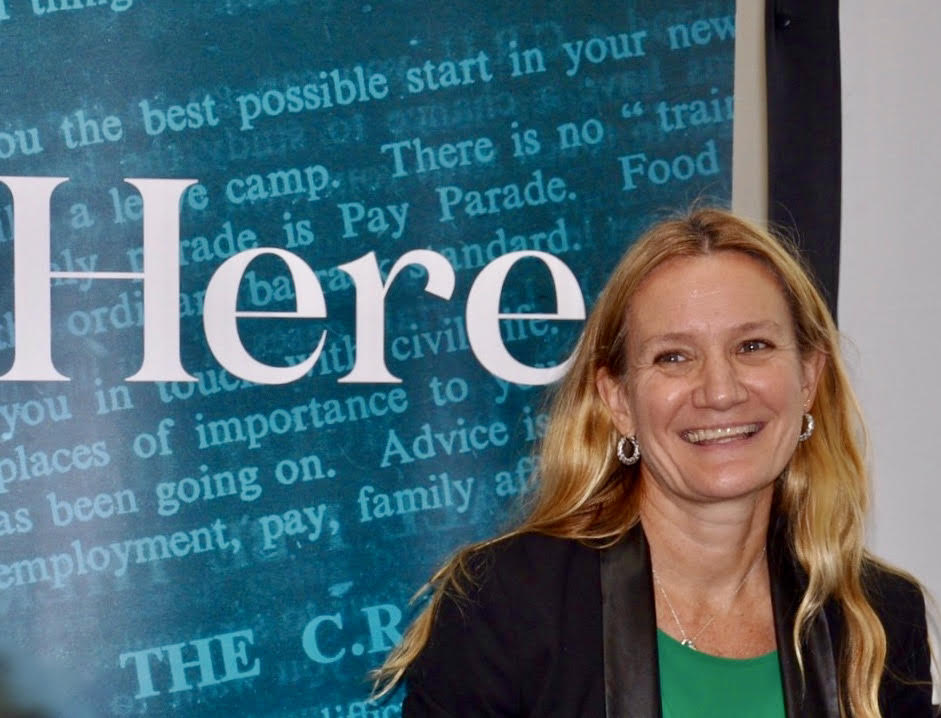Organizations are constantly launching efforts to improve their cultures. But real change can be difficult to achieve, because problems such as racism and sexism tend to be deeply baked into the system. They’re hard to dismantle, and hard to confront.
That issue is tackled head on in a new course, “Equity, Diversity, and Inclusion in Teams and Organizations,” launched in 2021 by Teachers College’s master’s degree program in Social Organizational Psychology. Each week, students in the course learn the latest research and interventions on diversity, equity and inclusion within teams and organizations. They also journal about classroom activities or their own experiences, grappling with questions such as: “What does this circumstance mean for me as a white ally?” or “What does this mean for me as a person of color within an organizational context?”
Confronting such questions is, in essence, the main thrust of the Social & Organizational Psychology master’s program itself.
“We are standing on a curve of change,” says the program’s director Sarah Brazaitis, Associate Professor of Practice, who co-designed and co-teaches the course with doctoral student Shana Yearwood. “We have always had a strong commitment to social justice, but we believe now more than ever that our students are ready and able to make a difference in such a tumultuous time.”
We have always had a strong commitment to social justice, but we believe now more than ever that our students are ready and able to make a difference in such a tumultuous time.
—Sarah Brazaitis, Associate Professor of Practice and Director of TC’s master’s degree Program in Social-Organizational Psychology
The program focuses on three major tenets: a systems perspective, evidence-based practice, and a steadfast commitment to social justice.
The systems perspective is reflected in courses, which students take throughout their time in the program, that emphasize individual, interpersonal, team and organizational dynamics in the workplace, including communication, coaching, leadership and conflict resolution.

ONLINE, BUT STILL HIGH-TOUCH Brazaitis sees the program as a community: “As a student, you’re always going to be able to speak to a faculty member, whether it’s a question about a class or wanting to hear more about our research or getting advice about a job.”
The evidence-based component — or what Brazaits calls “the scientist-practitioner model” — grounds all of the program’s practice courses in theory and research so that “students are taking applied skills to their organizations that have both a theoretical and research basis.”
“The goal is to understand what areas require improvement within organizations,” Brazaitis says. “What do people need help with? What is necessary for organizations to do better both by themselves and for the greater good of the world?”
Implicit in that work is the program’s commitment to social justice. “We’re deeply aligned with TC’s values of making the world a better place for everyone.”
It’s all about looking at how we can make an impact, regardless of what type of space we’re in. Because wherever we are, we bring our social identities with us.
—Sarah Brazaitis, Associate Professor of Practice and Director of TC’s master’s degree Program in Social-Organizational Psychology
Recently, for example, a Diversity, Equity and Inclusion Anti-Racism Working Group has spent an entire year collecting data and developing a strategic plan to re-shape the program's anti-racism initiatives. The new course taught by Brazaitis and Yearwood is one outcome, as is a sister course that will be taught this coming fall by Professor of Psychology & Education Loriann Roberson, which will explore diversity metrics within organizations and teach students how to craft a multicultural audit. Still another course, “Constructive Multicultural Organizational Development: Leveraging Tension for Socially Just Change,” taught by two doctoral students, Allegra Chen-Carrel and Julian McNeil, “is attracting our students in droves,” Brazaitis says.
[Visit the Social-Organizational Psychology website to read profiles of students and alumni from the program.]
The skills that grow out of these experiences are applicable to all the settings that the program’s graduates find themselves in, from large, global corporations to small non-profits, NGOs, healthcare settings, educational, military and religious organizations. “It’s all about looking at how we can make an impact, regardless of what type of space we’re in,” Brazaitis says. “Because wherever we are, we bring our social identities with us.”

EMBARKING ON GOOD WORKS Rhapsodi Pierre-Jacques (M.A. ’17), an alumna of the Social-Organizational Psychology master’s program, with Sarah Brazaitis at TC’s Convocation. Pierre-Jacques is now Director, Customer Success, at the Medici Group, which helps companies accelerate innovation and growth by leveraging diversity. (Photo: TC Archives)
Brazaitis’ own work, which has focused to a large degree on the social identity of White women and how it shapes White women’s role in group dynamics, has powerfully illustrated the truth of that last statement. Currently, with Yearwood and another doctoral student, Stephanie Von Numers, she is conducting a study of White females and whether they will promote misogynistic male colleagues “when they are concerned that their white privilege is threatened.” [Read an opinion piece that Brazaitis published on TC’s homepage following the 2016 presidential election, in which a majority of White women voted for Donald Trump.]
Brazaitis also teaches a Group Dynamics course that includes an experiential weekend, known as the Group Relations Conference (GRC), that she calls “in vivo learning.”
Students exit our program having learned about themselves deeply, but also having learned about themselves as agents of change and agents of good works.
—Sarah Brazaitis, Associate Professor of Practice and Director of TC’s master’s degree Program in Social-Organizational Psychology
“It’s learning in real-time — you’re learning about group dynamics as you’re experiencing them,” she says of the conferences, which typically include her students and members of the public.
“The conference has such an impact on my students because it's not flipping through pages of a textbook; it’s not reading about something or hearing about something; you’re actually living it. The open-endedness of it is both the stress and the magic. Some participants don’t trust it — they think there really are some rules that someone isn’t telling them — and they’ll often make up strict rules and boundaries. And the idea is, isn’t this interesting? Why this group? Why do some people become leaders and others remain silent? Sometimes it’s about racism and expression, but it’s also influenced by wider world events and events at TC. Students tell me it’s one of the most powerful learning experiences they have in graduate school.”
[Read a profile of Social-Organizational Psychology program graduate Zad El-Makkaoui (M.A.’20), in which El-Makkaoui describes her experience in Brazaitis’s course, including the Group Relations Conference.]
Brazaitis develops the conferences working with Eliat Aram, the CEO of the Tavistock Institute in London, where she herself spent some time doing research and coursework, and where, she says, “the study of group relations was born.”
Brazaitis is proud that the program has been able to deliver quality on-line experiences during the COVID pandemic. That success, she says, may reflect the fact that, regardless of the medium, the program is fundamentally high-touch.
“Although some might say we are a big program, we are deeply a community. As a student, you’re always going to be able to speak to a faculty member, whether it’s a question about a class to wanting to hear more about our research, to getting advice about a job. We see our role as understanding the whole person: education, career, and life. We want to stay connected with these students — and we do. Just recently, I received an email from a student who graduated almost twenty years ago!”
Ultimately, Brazaitis says, “students exit our program having learned about themselves deeply, but also having learned about themselves as agents of change and agents of good works. In transforming themselves they’re able to transform organizations in which they work. That’s how we work towards a better world — particularly now, when it is in dire need of change.”
